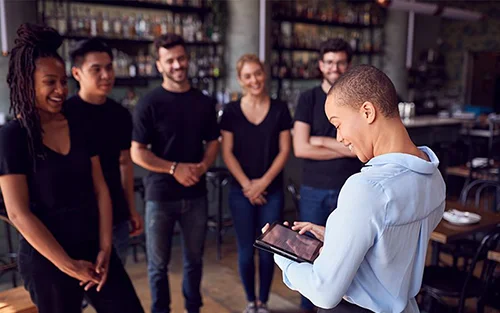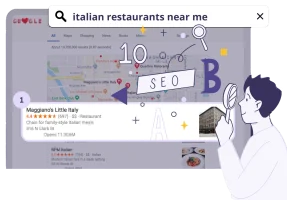Social media is an essential part of modern restaurant marketing and communication. It enables you to engage with customers, promote your business, and connect with your audience. To make sure that your restaurant’s online presence adheres to your values, safeguards your reputation, and upholds professionalism, you should have a clear social media policy in place. In this post, we’ll offer advice on how to create a social media policy that is specific to the requirements of your restaurant.
A social media policy defines rules and criteria for how your staff members should use social media sites. It establishes limitations, encourages moral conduct, and protects your restaurant’s brand.
Think about the culture at your restaurant: Your restaurant’s distinct culture, beliefs, and brand voice should be reflected in your social media policy. It should be in accordance with your overall marketing plan and help you maintain a strong online reputation.
Define what constitutes appropriate use of restaurant resources and personal social media during working hours.
Encourage employees to make it clear that their personal views are their own and do not represent the restaurant.
Stress the value of remaining respectful and professional while writing online about the restaurant, your coworkers, or your patrons.
Share no trade secrets, proprietary information, or anything else that could damage the reputation of the restaurant.

Define your restaurant’s brand voice and provide guidelines for representing the brand accurately and consistently across social media platforms.
Decide on guidelines for the use of official hashtags, logos, and marketing materials.
Name the person in charge of coming up with and approving social media content to make sure it complies with the restaurant’s branding and messaging.
Set standards for certain content categories, such culinary photography, promotions, or event coverage.
Describe how to respond to customer comments and complaints on social media sites.
Encourage staff to respond in a timely, polite, and professional manner and offer direction on when to escalate problems to management.
Educate employees about privacy settings and the importance of respecting customers’ privacy on social media.
Do not permit the transfer of sensitive information or client data without proper authorisation.
Remind staff members that while sharing content on social media, it is important to protect intellectual property rights and adhere to copyright regulations.
Encourage people to share other people’s content with the appropriate attributions and permissions.
Explain in detail the potential penalties for breaking the social media policy, such as disciplinary measures.
Ensure the policy complies with any local labor laws and rules.

Make sure that everyone has access to the social media policy, reads it, and agrees to it.
Give employees a forum where they can inquire about and get clarification on policy rules.
Regular training sessions should be held to inform staff about acceptable social media usage and policy reminders.
Keep up with new social media platforms, trends, and potential concerns so that you can address them in training sessions.
Establishing clear boundaries, safeguarding your brand, and encouraging responsible online behavior all depend on creating a social media policy that is specific to your business. You can leverage the power of social media while upholding a positive and consistent brand image by defining expectations, fostering professionalism, and offering standards for content creation and involvement.
Stay tuned for more informative blog posts on restaurant marketing strategies, restaurant tips, and industry insights to help you elevate your online presence. Keep reading our blogs and stay updated with Tableo to unlock the full potential of your restaurant’s social media success!

Unlock the tips that will help you stand out from the crowd and get more bookings!

Learn how to save time, reduce stress and fill your restaurant while you sleep!

Gen-Z marketing coordinator bringing fresh energy to web and graphic design, with a weekend habit of chasing adventure.

Gen-Z marketing coordinator bringing fresh energy to web and graphic design, with a weekend habit of chasing adventure.










Call us
Malta: +356 2033 0096
UK: +44 845 154 3698
USA: +1 (415) 231 3696
Spain: (900) 645443 (Free)
Argentina: +541151990515
Italy: (800) 769470 (Free)
Lithuania: +370 (6) 4721122
Poland: +48732083322
Resources
Call us
Connect with us
About us
Resources